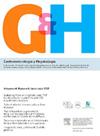人工智能在识别未确诊HCV感染患者的管理和临床决策中的效率(intelligent - c策略)。
IF 1.9
4区 医学
Q3 GASTROENTEROLOGY & HEPATOLOGY
引用次数: 0
摘要
人工智能(AI)可以优化丙型肝炎病毒(HCV)患者的诊断过程。我们的目的是评估基于人工智能的临床决策支持系统(intelligent - c策略)的临床、经济和管理效益。方法:intelligent - c策略包括:(1)回顾性阶段(2013年12月- 2021年9月),回顾医疗记录,寻找在系统中丢失的抗- hcv阳性和/或hcv - rna阳性患者;(2)前瞻性阶段(2022年2月- 2023年1月),对急诊科或住院的患者进行自动筛查(40-70岁)和常规危险因素检测。通过使用自动筛选,该系统在需要进行血液检查和要求进行HCV血清学检查的患者中识别出没有HCV诊断的患者;如果结果呈阳性,则进行HCV RNA反射试验。如果患者HCV-RNA呈阳性,就会产生警报并发送到肝病科。并将预期阶段与前期进行比较,评价其有效性和效率。结果:在回顾性研究阶段,intelligent - c策略发现了272例未随访的抗- hcv或hcv - rna阳性患者,其中11例接受了治疗;在前瞻性阶段,在7312例血清学检查后,鉴定出28例hcv - rna阳性患者,14例参加了预约,9例接受了治疗。在前瞻性研究阶段与前一阶段相比,血清学(7,312对909)、HCV rna阳性检测(28对3)和治疗患者(9对1)的增加为医疗系统节省了与就诊相关的费用。此外,intelligent - c具有成本效益。结论:intelligent - c策略的实施可以识别未确诊感染的患者,促进他们的诊断,减少医疗保健流程和相关的医院成本,并证明是有效的。本文章由计算机程序翻译,如有差异,请以英文原文为准。
The efficiency of artificial intelligence for management and clinical decision-making in the identification of patients with hidden HCV infection (Intelligen-C strategy)
Introduction
Artificial intelligence (AI) allows the optimization of diagnostic processes for hepatitis C virus (HCV) patients. Our objective was to evaluate the clinical, economic, and management benefits of an AI-based clinical decision support system (Intelligen-C strategy).
Methods
The Intelligen-C strategy consisted of (1) a retrospective phase (Dec 2013–Sep 2021), in which medical records were reviewed to search for anti-HCV-positive and/or HCV-RNA+ patients lost in the system, and (2) a prospective phase (Feb 2022–Jan 2023), in which automated screening (40–70 years) and routine testing for risk factors were performed in patients who were admitted to the emergency department or were hospitalized. With the use of automated screening, the system identified patients without an HCV diagnosis among those requiring blood tests and requested HCV serology; if the results were positive, reflex testing for HCV-RNA was performed. If a patient was HCV-RNA+, an alert was generated and sent to the hepatology department. In addition, the prospective phase was compared with the previous period to evaluate its effectiveness and efficiency.
Results
In the retrospective phase, the Intelligen-C strategy allowed the identification of 272 anti-HCV- or HCV-RNA+ patients who were lost to follow-up, of whom 11 were treated; in the prospective phase, after 7312 serologies were performed, 28 HCV-RNA+ patients were identified, 14 attended the appointment, and 9 were treated. In the prospective phase vs. the previous period, increased serology (7312 vs. 909), HCV-RNA+ detection (28 vs. 3), and treated patients (9 vs. 1) generated savings to the health system related to medical visits. In addition, Intelligen-C was cost-effective.
Conclusions
The implementation of the Intelligen-C strategy allowed the identification of patients with undiagnosed infection, facilitated their diagnosis, reduced healthcare processes and associated hospital costs, and proved to be efficient.
求助全文
通过发布文献求助,成功后即可免费获取论文全文。
去求助
来源期刊

Gastroenterologia y hepatologia
GASTROENTEROLOGY & HEPATOLOGY-
CiteScore
1.50
自引率
10.50%
发文量
147
审稿时长
48 days
期刊介绍:
Gastroenterology and Hepatology is the first journal to cover the latest advances in pathology of the gastrointestinal tract, liver, pancreas, and bile ducts, making it an indispensable tool for gastroenterologists, hepatologists, internists and general practitioners.
 求助内容:
求助内容: 应助结果提醒方式:
应助结果提醒方式:


